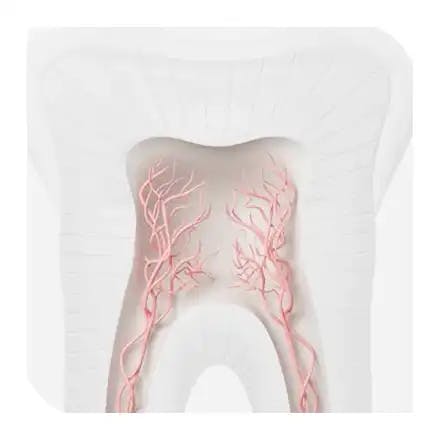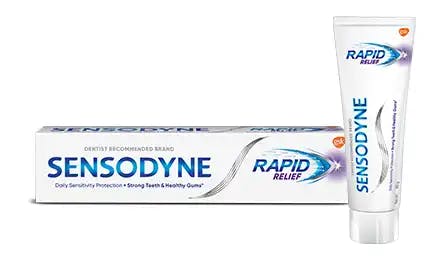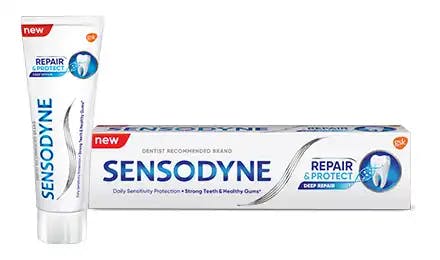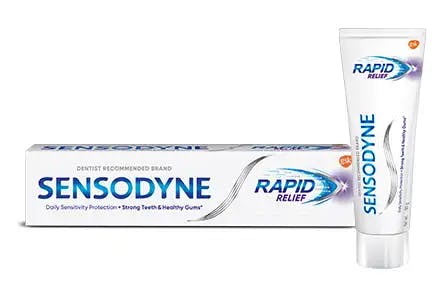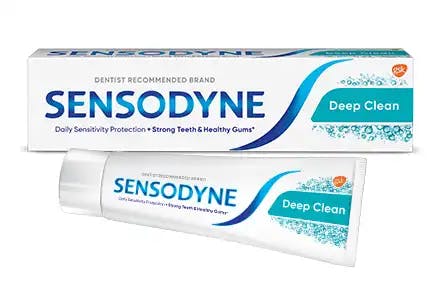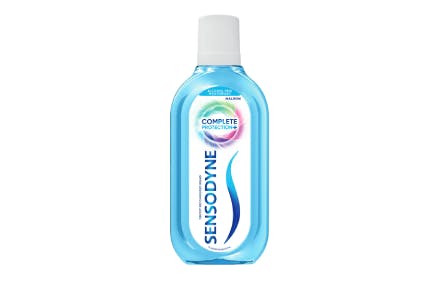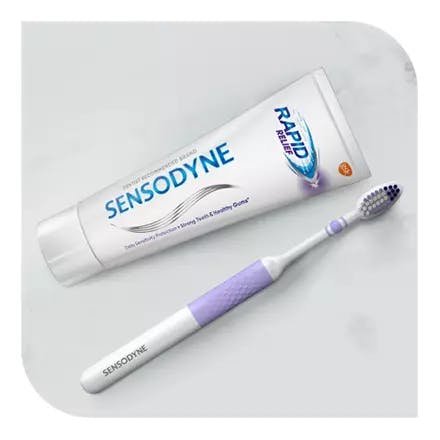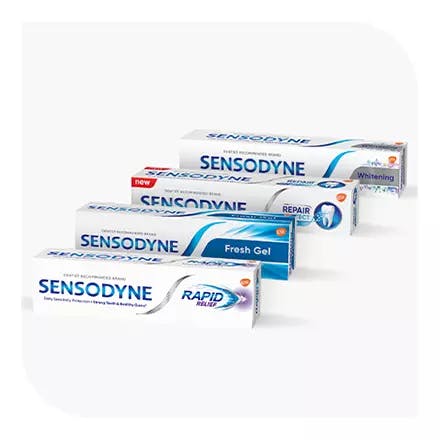Seven Ways to Deal with Tooth Sensitivity to Cold
Why are my teeth sensitive to cold?
When you experience discomfort in tooth from cold air, food or drinks, it can be because your gums have receeded or your tooth’s protective layer, enamel has worn down over time, exposing the softer, layer underneath called dentine, where the nerves live. This enamel erosion can happen because of a number of common factors:
- Acidic food and drink
It’s a sad truth that some of the foods we love don’t love us back. Even healthy food, such as tomatoes and pineapple, and drinks such as fruit juices or cola, contain acids that eat away the enamel on your teeth.
- Brushing too hard
Brushing your teeth is a fundamental part of your oral health regime, but if you apply too much pressure, or if you brush from side to side, you could cause enamel wear, especially around the gumline.
- Brushing too soon after eating or drinking
You might think you're looking after your teeth by brushing them quickly after enjoying acidic food and drink. But your saliva actually works to protect your enamel, so it's best to wait at least 30 mins after eating or drinking before brushing.
- Grinding your teeth
This is something you may not even be aware that you do. Teeth grinding, also called bruxism, is something people do when they’re stressed, or even in their sleep. Often, they don’t realize they’re doing it until they develop sensitive teeth.
- Gastroesophageal reflux (GERD)
Did you know that acid reflux can also affect your teeth? In addition to causing heartburn, the acid that makes its way back up your esophagus can erode the enamel from your teeth, leading to tooth sensitivity.
- Gum recession
Your tooth enamel covers the portion of your tooth that is visible outside of your gums. If your gums start to recede, as can happen with gum disease for example, the sensitive dentine will be exposed.
- Teeth whitening
Another common culprit is the wide range of professional teeth whitening treatments that can cause your teeth to feel more sensitive. Many contain physical abrasives and/or strong chemicals, and both can damage your enamel and cause tooth sensitivity.
Once the enamel has worn away and the dentine is exposed, certain triggers—including cold food, drinks, or even a burst of air—can excite the nerves, causing a short, sharp sensation, known as tooth sensitivity. Not only can this cause you to avoid the food, drinks and even activities you love, but the enamel erosion can eventually lead to something more serious, such as tooth decay.
It’s far better to take care of the issue early so you can get on with enjoying your life.
How do I take care of my sensitive teeth?
You’ll probably be relieved to hear that tooth sensitivity is usually treated easily at home, without the need for a special visit to the dentist. You should, of course, discuss your tooth sensitivity with your dentist at your next visit, in case they can offer additional advice and solutions relevant to your particular case.
In the meantime, you could make adjustments to the way you eat, drink and care for your teeth to alleviate the problem, though you should see your dental professional if symptoms persist.
Here are some tips for tooth sensitivity.

1. Practice Good Oral Care
Reduce your risk of tooth sensitivity by brushing twice a day with a soft-bristled toothbrush and by flossing every day. How and when you brush is also important:
- Brush in a gentle circular motion, to avoid the excess pressure that can damage enamel.
- It’s also best to avoid brushing within half an hour of eating or drinking, because the acids in food and drink will temporarily soften your tooth enamel. The last thing you want to do is brush it away!
A good oral care routine can help protect your teeth and gums and help prevent conditions like enamel wear or receding gums, which can lead to sensitive teeth.

2. Drink through a straw
Sipping on cold beverages can be painful. Instead, drink them through a straw so the liquid bypasses your teeth and is less likely to trigger a twinge of tooth sensitivity. If you avoid using plastic straws for environmental reasons, that’s great – but you don’t have to suffer for it. Simply choose reusable metal or bamboo straws instead.

3. Eat dessert differently
You don’t have to give up your favorite frozen desserts—just try eating them differently. Rather than biting into ice cream, lick it instead. This way, you’ll avoid direct contact with your teeth and get to savor it longer. Better yet, forego the cone and order your ice cream in a bowl so you can eat it with a spoon. That will allow you to place it farther back in your mouth, hopefully bypassing direct contact with any areas of exposed dentine.

4. Make different dietary choices
Don’t worry, we’re not talking about giving up everything you love. But recognize that having certain food and drinks on a daily basis may bring on tooth sensitivity. These include acidic fruits and their juices, sugary foods and drinks, and carbonated beverages – yes, even cola! Avoiding these, or making them only occasional treats, will help prevent enamel erosion both directly and indirectly – both from the acid’s action on your teeth and from the results of acid reflux.

5. Breathe through your nose
To prevent a gust of cold air from hurting your sensitive teeth, cover your mouth with a scarf or wear a face mask and breathe through your nose when you are outside so your teeth aren’t exposed.
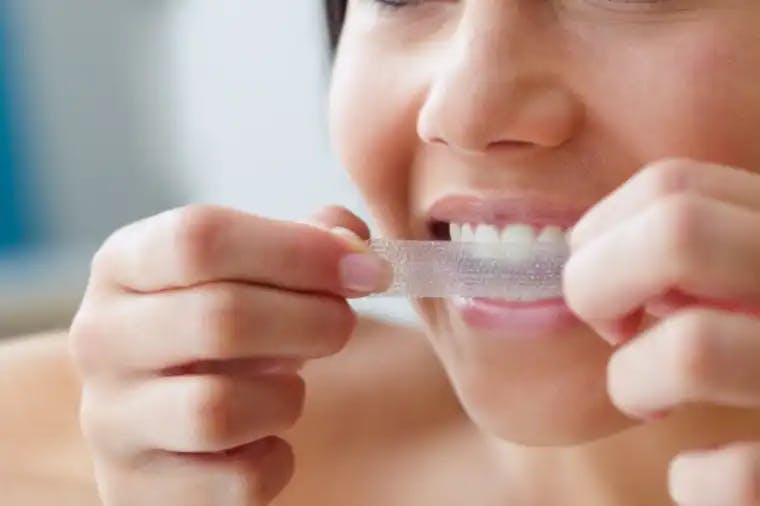
6. Wear a mouthguard
If your dentist confirms that you’re grinding your teeth at night, she may recommend you wear a mouthguard to prevent it. Mouthguards are available over the counter, but a custom-made guard from your dentist will probably fit better and be more comfortable to sleep in.
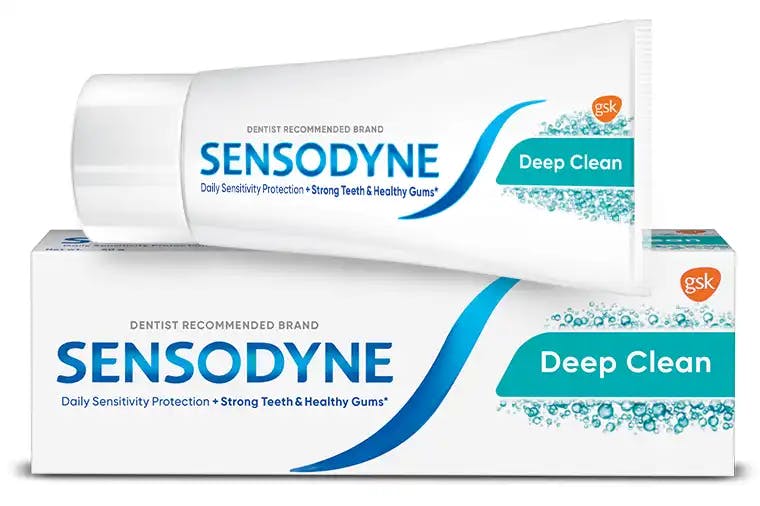
7. Brush with Sensodyne every day
An effective way to manage your sensitivity might be to brush twice daily with Sensodyne toothpaste. Sensodyne toothpastes contain ingredients that help build protection against the short, sharp sensation of tooth sensitivity, when used twice a day. We think life’s too short to compromise on enjoying food and drink, and by using Sensodyne you can start to enjoy your favorites without worry.
You don’t have to let tooth sensitivity get in the way of eating the things you love. Take care of your teeth and start enjoying your favorite things again.
